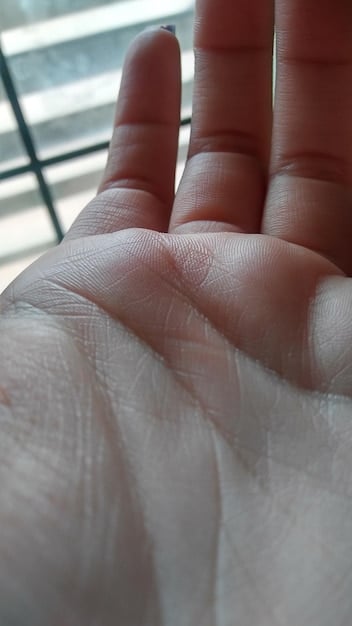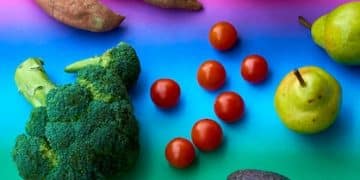Hydration for Energy: Boost Levels by 18% with Water

The Importance of Hydration: How Drinking Enough Water Can Improve Energy Levels by 18% is paramount for maintaining optimal bodily functions, as water is essential for energy production, nutrient transport, and waste removal, directly impacting physical and cognitive performance.
Do you often feel sluggish and tired, even after a good night’s sleep? The solution might be simpler than you think: proper hydration. The Importance of Hydration: How Drinking Enough Water Can Improve Energy Levels by 18% is something many people underestimate, leading to decreased performance and overall well-being.
The Science Behind Hydration and Energy Levels
Understanding the connection between hydration and energy levels starts with knowing how water functions within the body. Water is crucial for virtually every bodily process, from regulating temperature to facilitating chemical reactions. When you’re dehydrated, these processes become less efficient, directly impacting your energy levels.
How Water Impacts Cellular Function
Water is a key component in your cells, helping them maintain their shape and function properly. It also plays a vital role in transporting nutrients into cells and removing waste products. When you’re dehydrated, this transport system becomes sluggish, leading to a buildup of toxins and reduced nutrient delivery, both of which can contribute to fatigue.
The Role of Electrolytes
Electrolytes like sodium, potassium, and magnesium are essential minerals that regulate fluid balance and nerve function. These electrolytes are lost through sweat, especially during exercise. Dehydration can lead to an imbalance of these electrolytes, causing muscle weakness, fatigue, and even cramps. It’s important to replenish both water and electrolytes, especially after physical activity.
- Proper hydration supports efficient nutrient transport to cells.
- Adequate water intake helps remove waste products, preventing toxin buildup.
- Electrolyte balance, maintained through hydration, is crucial for nerve and muscle function.
In summary, hydration is not just about quenching thirst; it’s about optimizing the body’s internal processes to ensure efficient energy production and utilization. By understanding the science behind it, you can appreciate the significant impact of proper hydration on your overall well-being.
Recognizing the Signs of Dehydration
Identifying dehydration early is crucial to preventing its negative effects on your energy levels and overall health. Many people mistake the initial symptoms of dehydration for other issues, delaying the necessary action of rehydrating. Being aware of these signs can help you stay ahead and maintain optimal hydration.
Common Symptoms of Dehydration
The most obvious sign of dehydration is, of course, thirst. However, by the time you feel thirsty, you’re already mildly dehydrated. Other common symptoms include dry mouth and throat, decreased urine output, and dark urine. As dehydration progresses, you might experience headaches, dizziness, and fatigue.
Less Obvious Signs of Dehydration
Sometimes, the symptoms of dehydration are less apparent. For instance, constipation can be a sign, as water is needed to keep stool soft and easy to pass. Muscle cramps, especially during exercise, can also indicate dehydration and electrolyte imbalance. Additionally, dry skin and eyes can be subtle signs that your body needs more fluids. Cognitive function can also be impaired, leading to difficulty concentrating and remembering things.

- Thirst and dry mouth are classic indicators of dehydration.
- Dark urine and decreased urine output suggest your body is conserving fluids.
- Headaches, dizziness, and fatigue can result from reduced blood volume.
- Muscle cramps and constipation may indicate electrolyte imbalance due to dehydration.
Being vigilant about these signs and responding promptly with fluids can help you avoid the more severe consequences of dehydration. Regular monitoring of your body’s signals is key to maintaining optimal hydration and energy levels.
How Much Water Do You Really Need?
Determining the right amount of water to drink each day is essential for maintaining optimal energy levels and overall health. While the “8 glasses a day” rule is commonly cited, the ideal amount can vary based on individual factors and activity levels. Understanding these variables can help you tailor your hydration habits to your specific needs.
Factors Influencing Water Needs
Several factors can influence your daily water requirements. Your activity level is a major determinant, as you lose more fluids through sweat during exercise. Climate also plays a role; hotter and more humid environments increase sweat rate. Additionally, your overall health, age, and diet can affect how much water you need. For example, certain medical conditions may require increased fluid intake, while a diet high in sodium can increase water loss.
General Guidelines for Water Intake
While individual needs vary, there are general guidelines you can follow to ensure adequate hydration. For most adults, aiming for at least 8 glasses (64 ounces) of water per day is a good starting point. However, active individuals may need to consume significantly more, especially during and after physical activity. Listening to your body and drinking when you feel thirsty is also a reliable approach.
- Activity level significantly impacts water needs due to sweat loss.
- Climate conditions, such as heat and humidity, can increase fluid requirements.
- Overall health and diet influence hydration levels.
Adjusting your water intake based on these factors will help you maintain optimal hydration and support consistent energy levels throughout the day. Regular hydration is key to feeling your best and performing at your peak.
The Best Ways to Stay Hydrated Throughout the Day
Staying consistently hydrated requires more than just drinking water when you feel thirsty. Incorporating hydration habits into your daily routine can ensure you maintain optimal fluid levels and avoid energy slumps. Simple strategies and mindful practices can make a significant difference in your overall well-being.
Establish a Hydration Routine
Creating a routine can help you remember to drink water regularly. Start your day with a glass of water before having coffee or breakfast. Keep a water bottle with you at work or school and refill it throughout the day. Set reminders on your phone to drink water at regular intervals to combat forgetfulness. Incorporate water into your breaks and meals – having a glass of water with each meal can easily add to your daily intake.
Hydrating Foods and Drinks
While water is the primary source of hydration, many foods and drinks can also contribute to your fluid intake. Fruits like watermelon, strawberries, and oranges have high water content. Vegetables such as cucumbers, lettuce, and celery are also hydrating options. Drinks like herbal tea, coconut water, and even smoothies can help you meet your daily fluid needs. Be mindful of sugary drinks like soda and juice, as they can have adverse health effects despite their water content.

- Start your day with a glass of water to kickstart hydration.
- Carry a reusable water bottle and refill it regularly.
- Incorporate hydrating foods like fruits and vegetables into your diet.
- Choose water-rich beverages over sugary drinks.
By integrating these simple strategies into your daily life, you can ensure you stay well-hydrated and enjoy consistent energy levels. A proactive approach to hydration will help you feel more alert, focused, and energized.
Debunking Common Hydration Myths
Many misconceptions surround the topic of hydration, often leading to ineffective or even detrimental habits. Separating fact from fiction is essential for making informed decisions about your fluid intake and overall health. Understanding these myths can help you optimize your hydration practices.
Myth: You Only Need to Drink When You’re Thirsty
One of the most common myths is that thirst is a reliable indicator of hydration levels. In reality, by the time you feel thirsty, you’re already mildly dehydrated. Relying solely on thirst can lead to chronic under-hydration, which can negatively impact your energy levels, cognitive function, and overall health. Proactive hydration is key to avoiding this pitfall.
Myth: All Fluids Hydrate You Equally
Not all beverages are created equal when it comes to hydration. While water is the gold standard, other drinks can have varying effects. Sugary drinks like soda and juice can actually dehydrate you due to their high sugar content, which can cause the body to pull water from cells to process the sugar. Caffeinated beverages like coffee and tea can also have a diuretic effect, leading to increased fluid loss. Opting for water, herbal teas, and hydrating foods is a more effective approach.
Myth: Overhydration Is Impossible
While less common than dehydration, overhydration, or hyponatremia, is a real concern. Drinking excessive amounts of water can dilute the sodium levels in your blood, leading to serious health complications. This is particularly relevant for athletes who consume large amounts of water during endurance events. Balancing fluid intake with electrolyte consumption is crucial to avoiding overhydration.
- Thirst isn’t always the best indicator for hydration.
- Not all fluids are equally hydrating.
- Overhydration, though rare, can be dangerous.
By understanding and debunking these common hydration myths, you can develop healthier and more effective hydration habits. Being informed allows you to make better choices for your well-being and maintain optimal energy levels.
The Impact of Hydration on Cognitive Function
Hydration isn’t just crucial for physical energy; it also plays a significant role in cognitive function. Dehydration can impair mental performance, affecting concentration, memory, and overall cognitive abilities. Understanding this connection can help you prioritize hydration for optimal brain function.
How Dehydration Affects Brain Performance
The brain is about 75% water, making it highly sensitive to changes in hydration levels. Even mild dehydration can lead to decreased blood flow to the brain, reducing oxygen and nutrient delivery. This can result in difficulty concentrating, impaired short-term memory, and slower reaction times. Studies have shown that dehydration can have a similar impact on cognitive performance as sleep deprivation.
Staying Hydrated for Mental Clarity
Maintaining adequate hydration can significantly improve cognitive function. Drinking enough water helps ensure optimal blood flow to the brain, supporting efficient neural activity. This can lead to enhanced concentration, improved memory, and faster cognitive processing. Staying hydrated throughout the day is particularly important during mentally demanding tasks, such as studying, working, or problem-solving.
- Dehydration impacts brain function, reducing focus and memory.
- Proper hydration boosts cognitive function, improving mental clarity.
- Adequate water intake supports efficient neural activity.
By prioritizing hydration, you can support your brain’s optimal function and enhance your mental performance. Regular hydration is a simple yet powerful way to boost your cognitive abilities and stay mentally sharp.
| Key Aspect | Brief Description |
|---|---|
| 💧 Energy Boost | Water aids nutrient transport and waste removal, enhancing energy levels. |
| 🧠 Cognitive Function | Hydration supports optimal brain function, improving concentration and memory. |
| 💪 Physical Performance | Proper hydration prevents muscle cramps and fatigue during exercise. |
| 🩺 Overall Health | Hydration is crucial for various bodily functions, contributing to overall well-being. |
Frequently Asked Questions (FAQ)
▼
The general recommendation is about 8 glasses (64 ounces) of water per day, but individual needs vary. Adjust based on activity level, climate, and overall health. Staying hydrated is key for energy.
▼
Early signs include thirst, dry mouth, dark urine, and decreased urine output. Recognizing these symptoms early can help you rehydrate before dehydration worsens. Proper hydration is crucial.
▼
Yes, beverages like herbal tea, coconut water, and smoothies can contribute to your daily fluid intake. However, avoid sugary drinks and excessive caffeine, which can lead to dehydration.
▼
Dehydration can impair cognitive function, leading to decreased concentration, memory, and slower reaction times. Staying hydrated supports optimal brain activity and mental clarity, boosting overall performance.
▼
Yes, overhydration (hyponatremia) is possible, though rare. It occurs when you drink excessive amounts of water, diluting sodium levels in the blood. Balance fluid intake with electrolyte consumption.
Conclusion
In conclusion, understanding the importance of hydration: how drinking enough water can improve energy levels by 18% is crucial for your overall health and vitality. By recognizing the signs of dehydration, establishing a hydration routine, and debunking common myths, you can take proactive steps to maintain optimal fluid levels and enjoy consistent energy and cognitive function. Staying hydrated is a simple yet powerful way to invest in your well-being.





